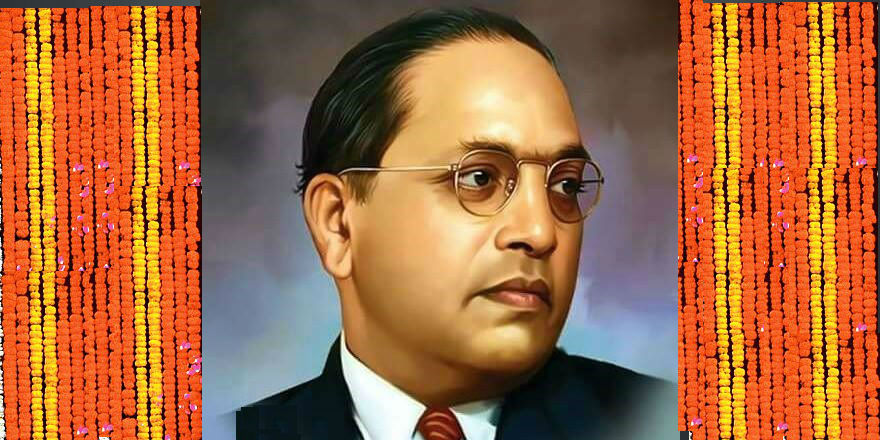One cannot describe Dr. Babasaheb Ambedkar in a few lines. Compilations of his achievements in various fields of study, his dedication towards uplifting the downtrodden, and his ideas for establishing a strong, independent, and modern India can span hundreds of pages. Such were his legendary works that US President Barack Obama had described him as a revered champion of Human Rights and chief author of the Constitution of India in his address to the Indian Parliament in 2010.
Inspired by Dr. Bhimrao Ambedkar’s views on improvement of backward classes, many of the Romani people in Hungary began converting to Buddhism in the late twentieth century, as he had converted to this religion just before his death on the 6th of December, 1956.
Born on the 14th of April, 1891, in Mahu, which is now in the Indore district of Madhya Pradesh, Dr. Babasaheb Ambedkar was the last of the 14 children of Ramji Maloji Sakpal and Bhimabai Murbadkar Sakpal. His father was a ranked army officer in the British Indian Army at Mahu cantonment. Young Bhimrao witnessed the extremely unfair treatment meted out to his caste, the Mahars, while at school. However, Mahadev Ambedkar, his teacher belonging to the Brahmin caste, was fond of him and gave his own surname of ‘Ambedkar’ to Bhimrao in the school records.
After his father’s retirement in the late nineteenth century, he had to deal with his mother’s death and extreme hardships of all brothers and sisters, including himself, while living with his paternal aunt. Bhimrao was the only one among them who managed to pass his examination and graduate to high school.
In the year 1897, Bhimrao Ambedkar moved with his family to Bombay (now Mumbai) and became the only untouchable on the roll of Elphinstone High School. In 1906, his family arranged his marriage to the nine-year-old Ramabai. After passing his matriculation in 1907, he entered the Elphinstone College affiliated to the University of Bombay. This event was celebrated in a grand manner by members of the backward castes after a public ceremony, as he was the first one among the untouchables to achieve this.
In 1912, he got his degree from the University of Bombay in economics and political science. He moved to the United States of America the following year, with a scholarship from the princely state of Baroda. He passed his M.A. in 1915, majoring in subjects such as Economics, Philosophy, History, Sociology, and Anthropology.
He received his PhD in Economics from Columbia University in the year 1927. Earlier he had completed a Doctorate in the same subject from London School of Economics. In 1918, he was appointed Professor of Political Economy in Bombay’s Sydenham College of Commerce and Economics. He was invited the following year to testify before the Southborough Committee involved in the preparation of Government of India Act 1919.
At its hearing, Dr. Ambedkar argued on the point of creating reservations for the backward classes and other religious communities. He made great efforts to promote education among the untouchables and to uplift them while practicing law in the Bombay High Court. He also launched active protests against untouchability with several public movements and marches.
Dr. Ambedkar was appointed Principal of the Government Law College, Bombay, in the year 1935. He also published his book titled ‘Annihilation of Caste’ in 1937, which strongly criticized caste system and orthodoxy. When India gained independence on 15th of August, 1947, the new government invited him to serve as the country’s first Law Minister, and on the 29th of the same month, he was appointed Chairman of the Constitution Drafting Committee.
He drafted the Constitution of India, providing various constitutional guarantees, protections of civil liberties, religious freedom, abolition of untouchability, and outlaw of discrimination. He also argued for social and economic rights for women and gained support for introducing the system of reservations for members of backward castes in jobs associated with civil services, schools, and colleges.

